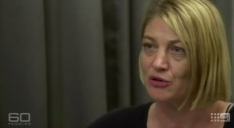60 Minutes producer exits as internal review finds major faults with Lebanon story
 The 60 Minutes producer behind the bungled child kidnapping story in Lebanon will be departing Channel Nine after an internal review revealed major flaws in the story approval process that led to its 60 Minutes’ crew being arrested and charged.
The 60 Minutes producer behind the bungled child kidnapping story in Lebanon will be departing Channel Nine after an internal review revealed major flaws in the story approval process that led to its 60 Minutes’ crew being arrested and charged.
Stephen Rice is leaving Nine while other staff involved in the planning and execution of the Sally Faulkner story have received formal warnings. Rice’s departure comes despite no official recommendation being made in the review to sack staff.
Nine CEO Hugh Marks said in statement: “The manner in which we produced Sally Faulkner’s story exposed our crew to serious risks, and exposed 60 Minutes and Nine to significant reputational damage. We got too close to the story and suffered damaging consequences.
“Amongst other elements of the execution of this story it was inappropriate, and at odds with our standard procedure, for a payment to be made directly by 60 Minutes to the recovery agency that had been independently contracted by Sally Faulkner. It was also inappropriate, with the risks involved for our crew, not to have consulted with Nine’s security advisers before the story was finalised.”

